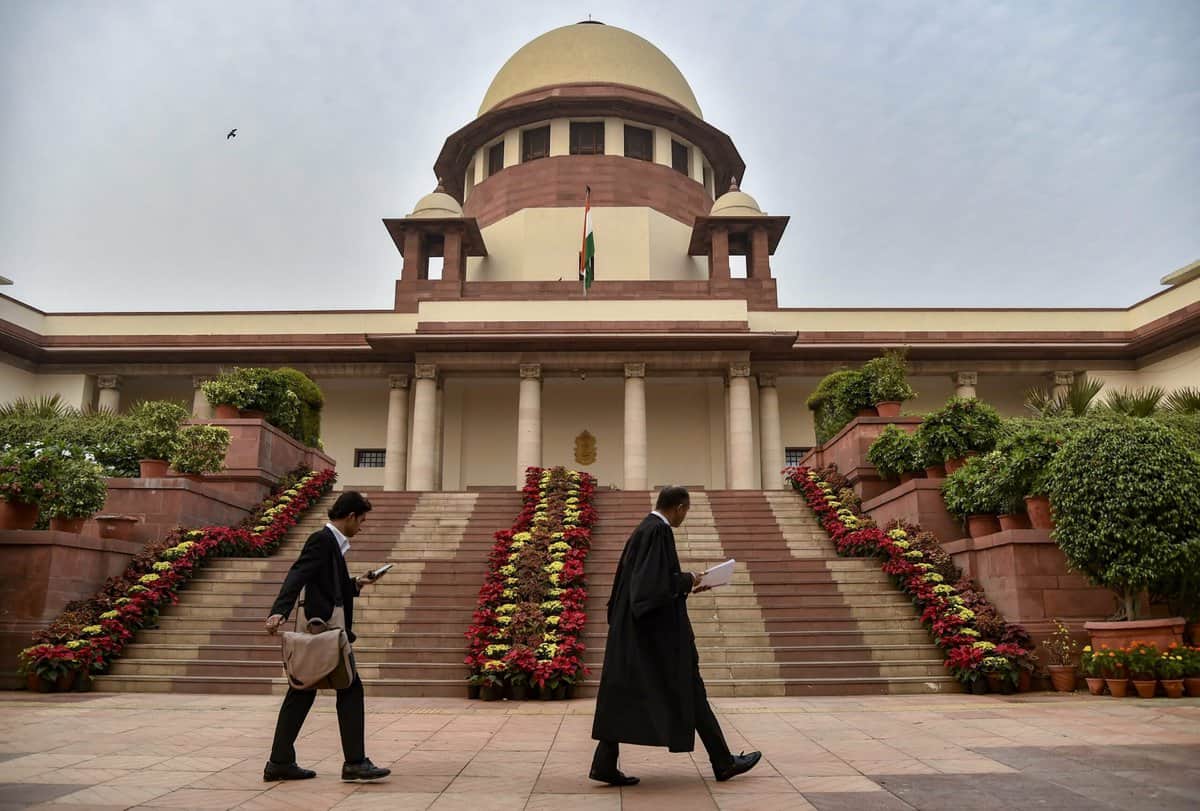
New Delhi: True justice in cases of crimes against children is achieved not merely by nabbing the culprit or the severity of punishment meted out but by the support and security provided to the victim, the Supreme Court has said.
A bench of Justices S Ravindra Bhat and Aravind Kumar made the observation while issuing a slew of directions relating to the appointment of support persons under the POCSO Act.
A “support person” means a person assigned by the Child Welfare Committee to render assistance to the child through the process of investigation and trial.
“In crimes against children, it is not only the initiating horror or trauma that is deeply scarring; that is aggravated by the lack of support and handholding in the days that follow.
“In such crimes, true justice is achieved not merely by nabbing the culprit and bringing him to justice, or the severity of punishment meted out, but the support, care, and security to the victim (or vulnerable witness), as provided by the state and all its authorities in assuring a painless, as less an ordeal an experience as is possible, during the entire process of investigation, and trial,” the bench said.
The apex court said the support and care provided through state institutions and offices is vital during this period.
The top court said justice can be said to have been approximated only when the victims are brought back to society, made to feel secure, and their worth and dignity, restored.
“Without this, justice is an empty phrase, an illusion. The POCSO Rules 2020, offer an effective framework in this regard, it is now left to the State as the biggest stakeholder in it to ensure its strict implementation, in letter and spirit,” the bench said which was hearing a plea by NGO Bachpan Bachao Andolan highlighting the difficulties faced by a survivor in a POCSO case in Uttar Pradesh.
Noting the role of a “support person” under the Protection of Children from Sexual Offences Rules (POCSO), 2020, remains unfulfilled, the bench said it is necessary that steps are taken to ensure that the POCSO Act and the mechanisms it creates are functioning and effective.
The apex court directed the Uttar Pradesh Principal Secretary, Department of Women and Child Welfare, to convene a meeting within the next six weeks to assess capabilities in the state with respect to the support persons ecosystem for the selection, appointment, need for special rules/guidelines/Standard Operating Procedure in regard to their appointment, training, etc.
The apex court directed the Centre and the National Commission for Protection of Child Rights to file an affidavit on the framing of guidelines by October 4, 2023.
“Prepare a framework, in the form of a Standard Operating Procedure (SOP) to ensure proper implementation of Rule 12 of the POCSO Rules, 2020, for reporting by the respective CWCs on the specific heads of information collected by them, on a monthly basis.
“This shall include the number of cases, where support persons have been engaged in trials and inquiries throughout the state. The information should also reflect whether they were from the DCPU directory, or with external help from an NGO,” the bench said.
The top court acknowledged that support persons who are independently trained professionals would need to take up tasks which require intensive interactions in often, hostile environments, and consequently deserve to be paid adequate remuneration.
“Therefore, though the Rules state that such personnel should be paid equivalent to a skilled worker as per the Minimum Wages Act, 1948, this court is of the opinion that the remuneration paid for the duration of the work, should be commensurate to the qualifications and experience of these independent professionals, having regard to the salaries paid to those with comparable qualifications employed by the government, in PSUs, or other institutions run by the government (e.g. hospitals), and this too may be considered in the meeting to be convened by the principal secretary,” the bench said.
